The Message (Arabic: ???????? Ar-Ris?lah; originally known as Mohammad, Messenger of God) is a 1976 epic historical drama film directed by Moustapha Akkad, chronicling the life and times of the Islamic prophet Muhammad. Released in Arabic (1976) and English (1977), The Message serves as an introduction to early Islamic history.
| The Message | |
|---|---|
Film poster | |
| Directed by | Moustapha Akkad |
| Produced by |
|
| Written by |
|
| Screenplay by | H.A.L. Craig |
| Based on | The Islamic prophet Muhammad |
| Starring |
|
| Narrated by | Richard Johnson |
| Music by | Maurice Jarre |
| Cinematography |
|
| Edited by |
|
Production company | Filmco International Productions Inc. |
| Distributed by | Tarik Film Distributors |
Release date |
|
Running time |
|
| Country |
|
| Language |
|
| Budget | $10 million |
| Box office | $15 million |
The film was nominated for Best Original Score in the 50th Academy Awards, composed by Maurice Jarre, but lost the award to Star Wars (composed by John Williams).
Screenplay
Mohammed is visited by the angel Jibriel, which makes him deeply shocked. The angel asks him to start and spread Islam. Gradually, almost the entire city of Mecca begins to convert. As a result, more enemies will come and hunt Muhammad and his companions from Mecca and confiscate their possessions. They head north, where they receive a warm welcome in the city of Medina and build the first Islamic mosque. They are told that their possessions are being sold in Mecca on the market. Mohammed chooses peace for a moment, but still gets permission to attack. They are attacked, but win the Battle of Badr. The Meccans want revenge and beat back with three thousand men in the Battle of Uhud, killing Hamza ibn Abd al-Muttalib. The Muslims ran after the Meccans and left the camp unprotected. Because of this, they were surprised by riders from behind, so they lost this time. The Meccans and the Muslims closed a 10-year truce. A few years later, Khalid ibn Walid, a Meccan general who killed many Muslims, converted to Islam. Meanwhile, Muslim camps in the desert were attacked in the night. The Muslims thought that the Meccans had done so. Abu Sufyan came to Medina fearing retribution and claiming that it was not the Meccans, but robbers who had broken the truce. None of the Muslims give him an audience, claiming he "observes no treaty and keeps no pledge." The Muslims respond with an attack on Mecca with very many troops and "men from every tribe". Abu Sufyan sought an audience with Muhammad on the eve of the attack. The Meccans became very scared, but are reassured that no one will be abused and any in their house, by the Kaaba, or in Abu Sufyan's house will be safe. They surrendered and Mecca came into the hands of the Muslims. The Pagan images of the gods in the Kaaba were destroyed, and the very first azan in Mecca was called on the Kaaba by Bilaal Ibn Rabaah.
- English version
- Anthony Quinn as Hamza
- Irene Papas as Hind
- Michael Ansara as Abu Sufyan ibn Harb
- Johnny Sekka as Bilal
- Michael Forest as Khalid
- André Morell as Abu Talib
- Garrick Hagon as Ammar
- Damien Thomas as Zayd
- Martin Benson as Abu Jahl
- Robert Brown as Utbah
- Rosalie Crutchley as Sumayyah
- Bruno Barnabe as Umayyah
- Neville Jason as Ja'far
- John Bennett as Saloul
- Donald Burton as `Amr
- Earl Cameron as Najashi
- George Camiller as Waleed
- Nicholas Amer as Suhayl
- Ronald Chenery as Mus`ab
- Michael Godfrey as Baraa'
- John Humphry as Ubada
- Ewen Solon as Yasir
- Wolfe Morris as Abu Lahab
- Ronald Leigh-Hunt as Heraclius
- Leonard Trolley as Silk Merchant
- Gerard Hely as Poet Sinan
- Habib Ageli as Hudhayfah
- Peter Madden as Toothless Man
- Hassan Joundi as Kisra
- Abdullah Lamrani as Ikrimah
- Elaine Ives-Cameron as Arwa
- Mohammad Al Gaddary as Money Lender
- Arabic version
- Abdullah Gaith as Hamza
- Muna Wassef as Hind
- Hamdi Gaith as Abu Sufyan ibn Harb
- Ali Ahmed Salem as Bilal
- Mahmoud Said as Khalid
- Ahmad Marey as Zayd
- Mohammad Larbi as Ammar
- Hassan Joundi as Abu Jahl
- Sana' Jamil as Sumayyah
While creating The Message, director Akkad, who was Muslim, consulted Islamic clerics in a thorough attempt to be respectful towards Islam and its views on portraying Muhammad. He received approval from Al-Azhar in Egypt but was rejected by the Muslim World League in Mecca, Saudi Arabia. Akkad had to go outside the United States in order to raise the production money needed for the film. Lack of financing nearly shut down the film because its initial backers pulled out.
Financing for the project finally came from the governments of Kuwait, Libya and Morocco, but when it was rejected by the Muslim World League, Emir Sabah III Al-Salim Al-Sabah of Kuwait withdrew financial support. King Hassan II of Morocco gave Akkad full support for the production, while King Khalid bin Abdulaziz of Saudi Arabia and then-Libyan leader Muammar al-Gaddafi provided financial support too.
The film was shot in Morocco and Libya, with production taking four and a half months to build the cities of Mecca and Medina as they looked in Muhammad's time. Production took one year, Akkad filmed for six months in Morocco, but had to stop when the Saudi government exerted great pressure on the Moroccan government to stop the project. Akkad went to al-Gaddafi for support in order to complete the project, and the Libyan leader allowed him to move the filming to Libya for the remaining six months.
Akkad saw the film as a way to bridge the gap between the Western and Islamic worlds, stating in a 1976 interview:
I did the film because it is a personal thing for me. Besides its production values as a film, it has its story, its intrigue, its drama. Besides all this I think there was something personal, being a Muslim myself who lived in the west I felt that it was my obligation my duty to tell the truth about Islam. It is a religion that has a 700 million following, yet it's so little known about which surprised me. I thought I should tell the story that will bring this bridge, this gap to the west.
Akkad also filmed an Arabic version of the film (in which Muna Wassef played Hind) simultaneously with an Arab cast, for Arabic-speaking audiences. He felt that dubbing the English version into Arabic would not be enough, because the Arabic acting style differs significantly from that of Hollywood and Bollywood. The actors took turns doing the English and Arabic versions in each scene, and both are now sold together on some DVDs.
In accordance with the beliefs of some Muslims regarding depictions of Muhammad, his face is not depicted on-screen nor is his voice heard. Because Islamic tradition generally forbids any direct representation of religious figures, the following disclaimer is displayed at the beginning of the film:
The makers of this film honour the Islamic tradition which holds that the impersonation of the Prophet offends against the spirituality of his message. Therefore, the person of Mohammad will not be shown (or heard).
The rule above was also extended to his wives, his daughters including Fatimah, his sons-in-law, and the first caliphs (Abu Bakr, Umar, Uthman, and Ali ibn Talib his paternal cousin). This left Muhammad's uncle Hamza (Anthony Quinn) and his adopted son Zayd (Damien Thomas) as the central characters. During the battles of Badr and Uhud depicted in the movie, Hamza was in nominal command, even though the actual fighting was led by Muhammad.
Whenever Muhammad was present or very close by, his presence was indicated by light organ music. His words, as he spoke them, were repeated by someone else such as Hamza, Zayd or Bilal. When a scene called for him to be present, the action was filmed from his point of view. Others in the scene nodded to the unheard dialogue or moved with the camera as though moving with Muhammad.
The closest the film comes to a depiction of Muhammad or his immediate family are the view of Ali's famous two-pronged sword Zulfiqar during the battle scenes, a glimpse of a staff in the scenes at the Kaaba or in Medina, and Muhammad's camel, Qaswa.
In July 1976, five days before the film opened in London's West End, threatening phone calls to a cinema prompted Akkad to change the title from Mohammed, Messenger of God to The Message, at a cost of £50,000.
Sunday Times film critic Dilys Powell described the film as a "Western … crossed with Early Christian". She noted a similar avoidance of direct depictions of Jesus in early biblical films, and suggested that "from an artistic as well as a religious point of view the film is absolutely right". Richard Eder of The New York Times described the effect of not showing Muhammad as "awkward" and likened it to "one of those Music Minus One records," adding that the acting was "on the level of crudity of an early Cecil B. DeMille Bible epic, but the direction and pace is far more languid." Variety praised the "stunning" photography, "superbly rendered" battle scenes and the "strong and convincing" cast, though the second half of the film was called "facile stuff and anticlimactic." Charles Champlin of the Los Angeles Times thought the battle scenes were "spectacularly done" and that Anthony Quinn's "dignity and stature" were right for his role. Gene Siskel of the Chicago Tribune gave it two stars out of four, calling it "a decent, big-budget religious movie. No more, no less." John Pym of The Monthly Film Bulletin wrote: "The unalleviated tedium of this ten-million dollar enterprise (billed as the first 'petrodollar' movie) is largely due to the tawdry staginess of all the sets and the apparent inability of Moustapha Akkad ... to muster larger groups of people on any but two-dimensional planes."
In 1977, as the film was scheduled to premiere in the United States, a splinter group of the black nationalist Nation of Islam calling itself the Hanafi Movement staged a siege of the Washington, D.C. chapter of the B'nai B'rith. Under the mistaken belief that Anthony Quinn played Muhammad in the film, the group threatened to blow up the building and its inhabitants unless the film's opening was cancelled. The standoff was resolved after the deaths of a journalist and a policeman, but "the film's American box office prospects never recovered from the unfortunate controversy."
Muna Wassef's role as Hind in the Arabic-language version won her international recognition.
The film was nominated for an Oscar in 1977 for Best Music, Original Score for the music by Maurice Jarre.
Watch movie The Message 1976 Film online on Amazon
Watch movie The Message 1976 Film online
Watch The Movie On PrimeNigahen Full HD Movie Download
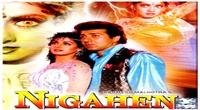
Hattrick Full HD Movie Download

Shriman Satyawadi Full HD Movie Download
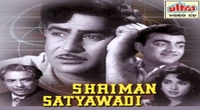
Ardhangini Full HD Movie Download
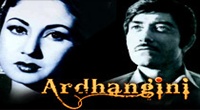
Veerta Full HD Movie Download
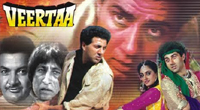
Aagey Se Right Full HD Movie Download
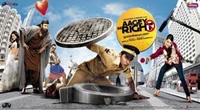
Rahul Full HD Movie Download

Bheja Fry 2 Full HD Movie Download

Naukar Full HD Movie Download
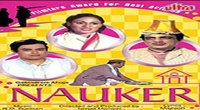
Netrikkan Full HD Movie Download
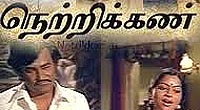
Subhash Full HD Movie Download
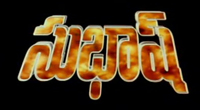
Ayyapa Swami Janma Rahasym Full HD Movie Download
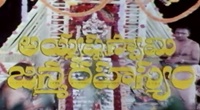
Jeet-Born To Win Full HD Movie Download

Bahurani Full HD Movie Download
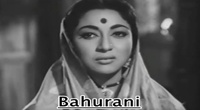
Sati Sukanya Full HD Movie Download
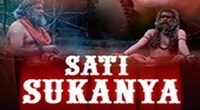
Bheeshma Partigyaa Full HD Movie Download

Varavelpu Full HD Movie Download

Annayin Anai Full HD Movie Download
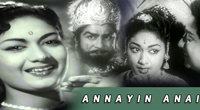
Bangaru Kanuka Full HD Movie Download
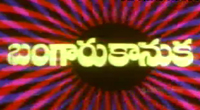
Maha Purushudu Full HD Movie Download
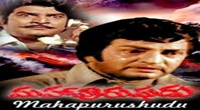
Nakhuda Full HD Movie Download
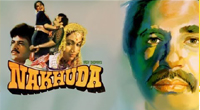
Download latest Movie from bollywood
- 1> baaghi 3
- 2> THE SKY IS PINK MOVIE FULL STORY AND REVIEW
- 3> Luka Chuppi
- 4> TO ALL THE BOYS I’VE LOVED BEFORE
- 5> Kabir Singh
- 6> Street Dancer 3D
- 7> Simmba
- 8> Gone Girl
- 9> The Girl Who Lived
- 10> Ludo
- 11> DILWALE DULHANIA LE JAYENGE
- 12> GUILTY
- 13> The Godfather
- 14> Adventures of Rusty
- 15> Sooryavanshi
- 16> Satyameva Jayate 2
- 17> Thappad
- 18> Bhool Bhulaiyaa 2
- 19> KGFChapter 2
- 20> Mardaani 2
- 21> Pinjar
- 22> Shivaji maharaj
- 23> Ek Villian 2
- 24> Hungama 2
- 25> Divergent
- 26> Mumbai Saga
- 27> The Internship
- 28> HIT (telugu)
- 29> Panga
- 30> The perfect date
- 31> 16 December
- 32> Gopala Gopala (Telugu)
- 33> Brahmastra
- 34> Gangubai Kathiawadi
- 35> Manmadhudu
- 36> Nenu local
- 37> Mahanati
- 38> Shatamanam bavathi
- 39> Lagaan
- 40> After
- 41> MOM
- 42> Shamshera
- 43> Raguvaran BTech
- 44> Khakee
- 45> The villain
- 46> OM
- 47> Mr. perfect
- 48> Bueatifull mind
- 49> Hichki
- 50> Gabbar Singh
- 51> Jogi
- 52> Before Sunrise
- 53> Before Sunset
- 54> Before Midnight
- 55> The Big Bull
- 56> Top Gun: Maverick
- 57> The Purge
- 58> The Sky is Pink
- 59> Laxmmi Bomb
- 60> Sadak 2
- 61> Sufna
- 62> Prithviraj
- 63> PK
- 64> Coolie No 1(2020)
- 65> Black Widow
- 66> Dear Zindagi
- 67> Dil Bechara
- 68> PHIR HERA PHERI
- 69> WAR
- 70> Dostana
- 71> RRR: Roudram Ranam Rudhiram
- 72> Maidan
- 73> Dabbang 3
- 74> Chhalaang
- 75> life as we know it
- 76> SherShaah
- 77> Sandeep Aur Pinky Faraar
- 78> Event Horizon
- 79> 83
- 80> Radhe: Your Most Wanted Bhai
- 81> Gunjan Saxena: The Kargil Girl
- 82> Mr India
- 83> Vivah
- 84> Anokha Bandhan
- 85> Ghost
- 86> Bhoot: Part One - The Haunted Ship
- 87> Haseen Dilruba
- 88> Laal Singh Chaddha
- 89> Qismat
- 90> Rajput
- 91> Drive
- 92> Dil Chahta Hai
- 93> Dil Ki Baazi
- 94> Dil Ka Rishta
- 95> Teesri Manzil
- 96> Dil
- 97> Love Aaj Kal
- 98> Khaali Peeli
- 99> Bunty Aur Babli 2
- 100> Atrangi Re
- 101> Gulabo Sitabo
- 102> Jodi
- 103> Suraj Pe Mangal Bhari
- 104> Deewana
- 105> Attack
- 106> Sardar Udham Singh
- 107> Toofan
- 108> THE LOVEBIRDS
- 109> Jersey
- 110> Ginny Weds Sunny
- 111> Thalaivi
- 112> Shiddat
- 113> Angels vs Zombies
- 114> Koi Mil Gya
- 115> Thank God
- 116> Bhuj: The Pride of India
- 117> Hum Aapke Hain Kaun
- 118> The Platform
- 119> Bird Box
- 120> Roohi Afzana
- 121> Torbaaz
- 122> Nikamma
- 123> World War Z
- 124> Extraction
- 125> Train to Busan
- 126> Life of Pi
- 127> SHAADI MEIN JROOR AANA
- 128> Himmat Aur Mehnat
- 129> To All The Boys: P.S. I Still Love You
- 130> Mimi
- 131> Good Newwz
- 132> Shubh Mangal Zyada Saavdhan
- 133> Raabta
- 134> Harry Potter and the Philosopher's Stone
- 135> Harry Potter and the Chamber of Secrets
- 136> Chhapaak
- 137> War of the Worlds
- 138> Harry Potter and the Prisoner of Azkaban
- 139> Harry Potter and the Goblet of Fire
- 140> MURDER MYSTERY
- 141> Shakuntala Devi
- 142> Bachchan Pandey
- 143> Jayeshbhai Jordar
- 144> Sheer Qorma
- 145> Saina
- 146> 'O' Pushpa I hate tears
- 147> Kedarnath
- 148> MS Dhoni The Untold Story
- 149> Chhichhore
- 150> Badhaai Ho
- 151> Unstoppable
- 152> Oz the Great And Powerful
- 153> The Girl on the Train
- 154> Haathi Mere Saathi 2020
- 155> The Conjuring: The Devil Made Me Do It
- 156> Gandhi Se Pehle Gandhi
- 157> The Song of Scorpions
- 158> Srimanthudu
- 159> Hello Guru Prema Kosame
- 160> Beauty and The Beast
- 161> Black Panther
- 162> Charlie and the Chocolate Factory
- 163> Bole Chudiyan
- 164> Fidaa
- 165> Duvvada Jagannadham
- 166> Bruce Lee: The Fighter
- 167> Hyper
- 168> Yaara
- 169> Red (2020)
- 170> Shivam
- 171> That Is Mahalakshmi
- 172> Nishabdham
- 173> Aashram 2020 web series
- 174> Laxmii
- 175> Mismatched
- 176> STUDENT OF THE YEAR 2
- 177> NAIL POLISH
- 178> Ramprasad Ki Tehrvi
- 179> KAAGAZ
- 180> 12 o Clock
- 181> The Power
- 182> bolo hau
- 183> Tribhanga
- 184> JAMUN
- 185> Madam Chief Minister
- 186> Maasaab
- 187> Aadhaar
- 188> Tanhaji
- 189> Bhaagi 3
- 190> Bhootnath
- 191> MALANG
- 192> Jai Mummy Di
- 193> Haathi Mere Saathi 2021
- 194> Shakeela
- 195> Unpaused
- 196> Annayya
- 197> Vamsoddharakudu
- 198> Mrugaraju
- 199> Narasimha Naidu
- 200> Sankranti
- 201> Manasu Maata Vinadhu
- 202> Anjaane
- 203> Apaharan
- 204> Bachke Rehna Re Baba
- 205> Bewafaa
- 206> Roohi
- 207> Radhe
- 208> Zindagi Khoobsoorat Hai
- 209> Yeh Mohabbat Hai
- 210> Yeh Kya Ho Raha Hai?
- 211> The Tomorrow War
- 212> DehradunDiary
- 213> Meri Shaadi Karaoo
- 214> Matruu Ki Bijlee Ka Mandola
- 215> No One Killed Jesica
- 216> Aag Ka Goola
- 217> Eight Million Dollars
- 218> Three Hundred
- 219> Cats and Dog
- 220> Decoy
- 221> Gold Rush
- 222> You Have Got Mail
- 223> Final Destination three
- 224> Tofan
- 225> Jungle
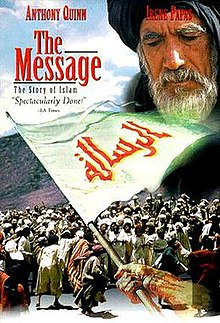 Story of movie The Message 1976 Film :
Story of movie The Message 1976 Film : 